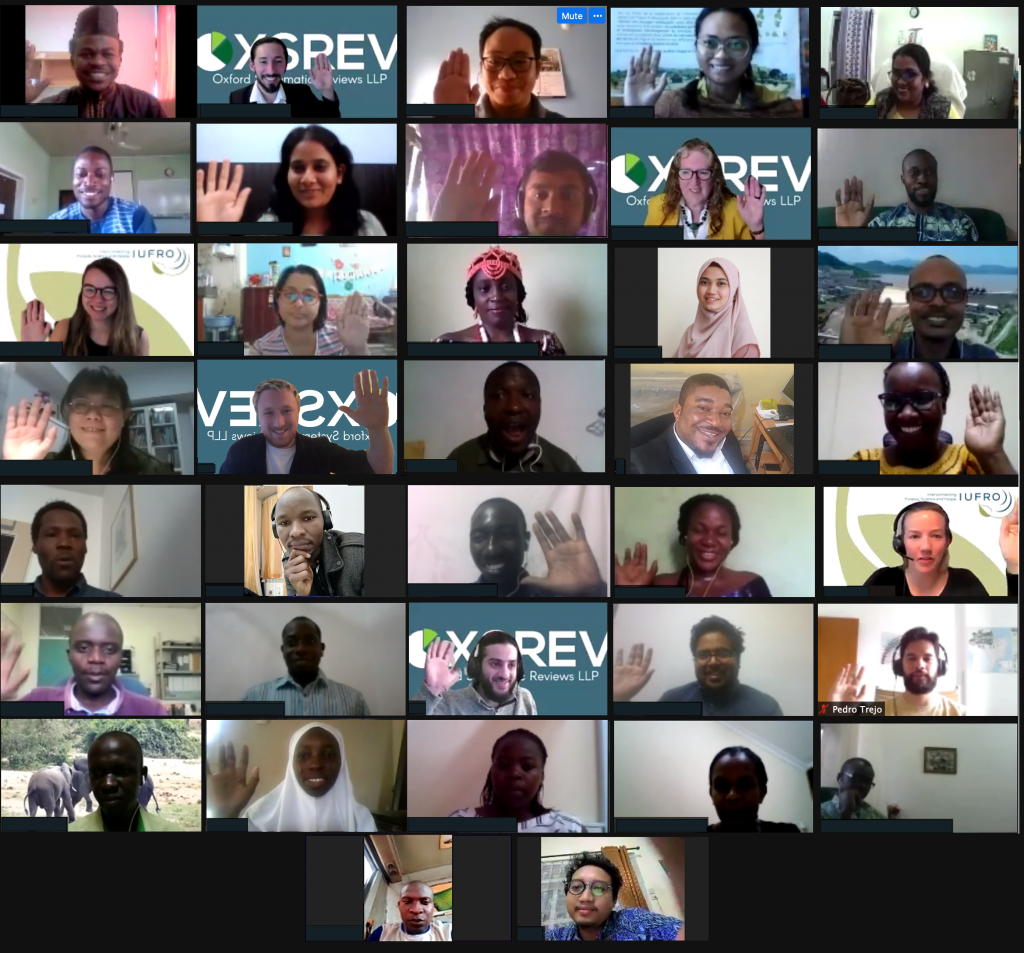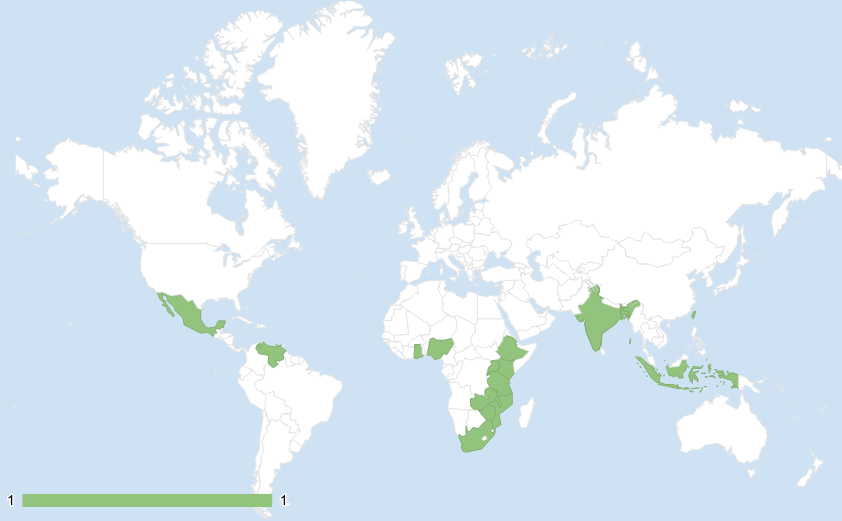Doctor Recommended: Systematic Evidence Evaluation to arrive at the best decision
Doctor Recommended: Systematic Evidence Evaluation to arrive at the best decision
Systematic reviews originally emerged in the field of medical science to synthesize and evaluate all available evidence to arrive at the best (most informed) decision. This process, which brings together information from a range of sources and disciplines, also plays an important role in informing debates and decisions on forests and environment. With a view to improving forest policy and practice, the online course “Systematic Evidence Evaluation on Forest Landscape Restoration” was organized as a collaboration between IUFRO’s Special Programme for Development of Capacities (IUFRO-SPDC) and Oxford Systematic Reviews (OXSREV), from March 22nd-26th, 2021.
IUFRO-SPDC strengthens skills needed in an increasingly complex world (online)
IUFRO-SPDC strengthens skills needed in an increasingly complex world (online)
The online course “Systematic Evidence Evaluation on Forest Landscape Restoration” was organized as a collaboration between IUFRO’s Special Programme for Development of Capacities (IUFRO-SPDC) and the University of Oxford in the UK, and took place between the 12th and 16th of October 2020.
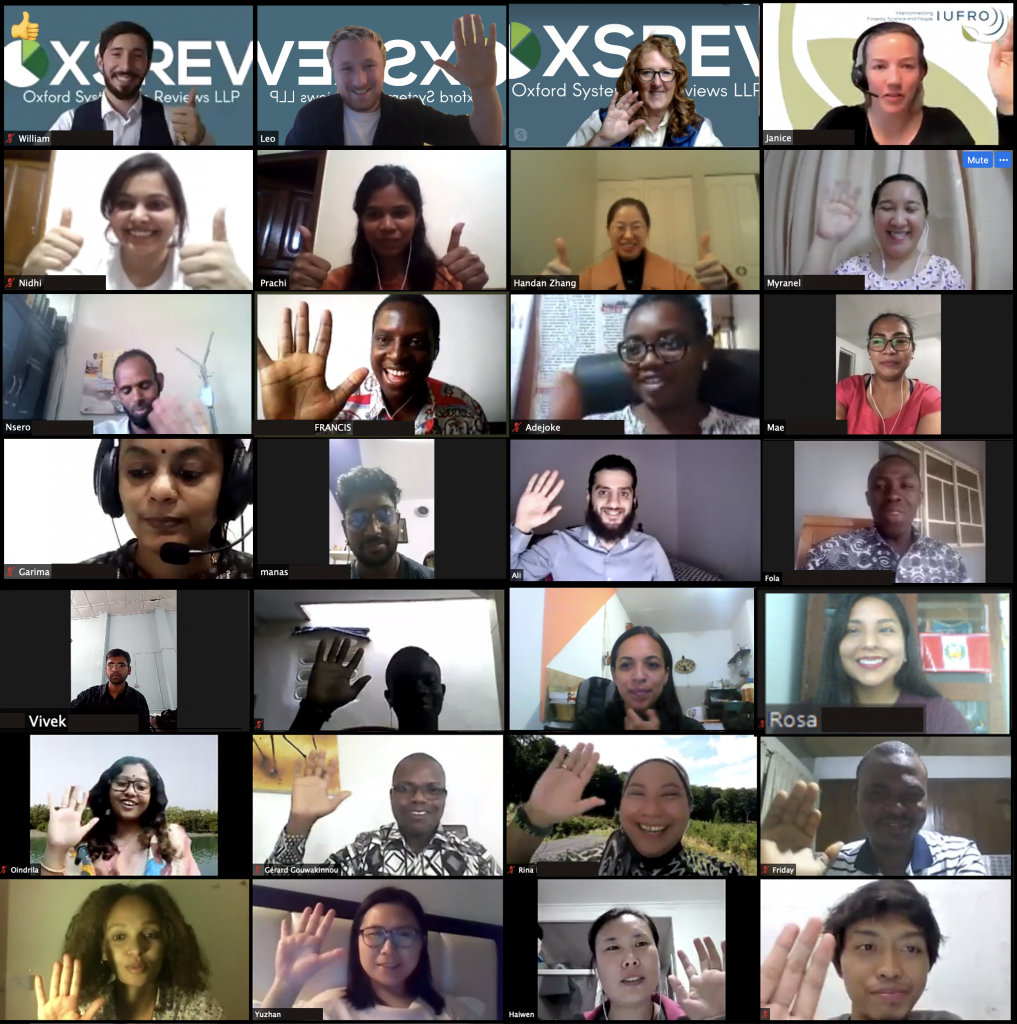
The subject of systematic evidence has become increasingly important in the last decade. The world is becoming more and more complex, and that asks for adequate policy making and smart management decisions. This course gives way to methods of evidence evaluation that support and encourage appropriate and accurate policy decisions and actions that can be taken about forests and forest-related land use.
Read more…What are the conditions for large-scale FLR success in Madagascar?
Oui, oui mon ami, we are in Madagascar, the third blog post in our FLR Snapshot series. The fourth biggest island in the world and the house of lemurs. FLR is a hot topic in the Boeny Region, which is dominated by vast flat areas below 400 m in altitude, with volcanic rocks cutting across the long plains along the coast and a dense network of rivers flowing through the landscape. Among the important networks and governance structures in the region, is the FLR committee for the Boeny region, established to connect the many FLR actors and develop a common base for knowledge sharing and capacity development.
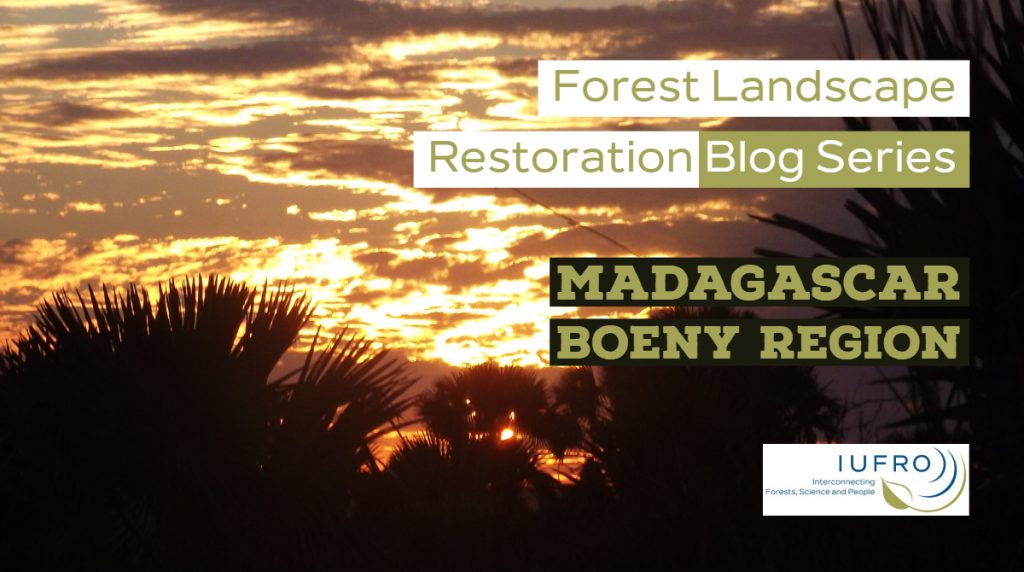
Third IUFRO Latin American Congress IUFROLAT III
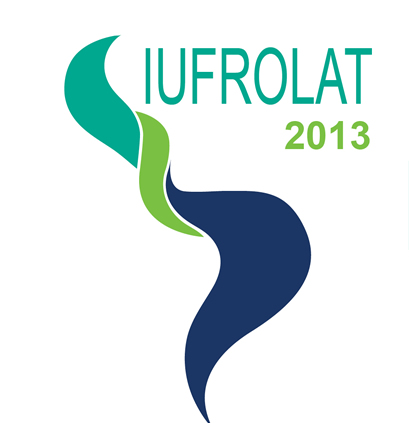
12-15 June 2013
San José, Costa Rica
Congress website: http://www.web.catie.cr/iufrolat/Iufro_ing.htm
This blog will present highlights and impressions from IUFROLAT III, the Third IUFRO Latin American Congress which starts today in the city of San José, Costa Rica and will run until Saturday, 15 June 2013. The Congress has been organized together with CATIE, the Agricultural Research and Higher Education Center, RIABM, the Iberoamerican Model Forest Network, FAO and several IUFRO members in the region. The overall theme of the Congress is “Forests, competitiveness and sustainable landscapes” and one of its major goals is to place relevant science-based information at the disposal of decision makers.
With up to 600 expected participants, IUFROLAT III has exceeded all expectations and has outnumbered previous regional Congresses by far. This clearly shows the extraordinary interest and need of scientists in Latin America to share and exchange information on the issues that are high on the agenda in the region concerning forest and landscape management, ecosystem services and climate change adaptation and mitigation, among others. The Congress languages being Spanish, English and Portuguese will further contribute to ensuring an excellent exchange of knowledge and experience.
IUFRO is placing particular emphasis on strengthening forest-related research in regions. Regional congresses are aimed to promote quality research as well as maintain the momentum of IUFRO activities in the five-year periods between IUFRO World Congresses in a certain region.
The great success of previous regional congresses, especially the First African Regional Congress held in Nairobi, Kenya, almost exactly one year ago, have confirmed the great need for IUFRO’s focusing on defined geographic areas. The first two IUFRO Latin American Congresses in Valdivia (1998) and La Serena (2006), both organized by INFOR, the Forest Research Institute of Chile, and the European Regional Congress that took place in Warsaw, Poland (2007), are further excellent examples.
IUFRO Board Meeting
Right before the Congress, the IUFRO Board (http://www.iufro.org/who-is-who/board/) held its annual meeting and important issues concerning the future of the network, its leadership, venues of world congresses and strategic guidelines are on the agenda. The decisions made at this Board meeting will pave the way for the next Board term starting after the next IUFRO World Congress in October 2014 in Salt Lake City, USA (http://www.iufro2014.com/).
IUFRO-SPDC Pre-Congress Training Workshop: Communicating Forest Research – Making Science work for Policy and Management
San José, Costa Rica, June 9-11
Prior to the Congress, IUFRO’s Special Programme for Development of Capacities (IUFRO-SPDC), formerly known as the Special Programme for Developing Countries in coordination with CATIE, carried out a training workshop for early-career scientists from the Latin American Region to strengthen capacities and skills in forest science communication. The workshop brought together 16 participants from 11 regional countries.
One attendant, Eduardo Lopez Rosse from CIDES-UMSA and UMSS-Trópico, Bolivia, expressed his thoughts on the workshop. “The workshop was a great experience… I learned how to transmit scientific information outside the academic arena to other stakeholders, municipalities in my country, as well as to the general public.”
Another scientist, Mariana Moya, Extension Advisor at the Facultad de Agronomía, Universidad de Buenos Aires of Argentina had this to say, “We have a lot of people in Latin America working intensively with small farmers, with aboriginal communities, and we must communicate with governments, private companies, and different kinds of social organizations. It is helpful to me to see experiences from people who work in Brazil, Chile, Panama, and how they are communicating in their extension programs.”
The workshop which concluded today was an excellent demonstration of the SPDC’ capacity development efforts in building strengthened communication of forest research in a region.
It is important to note that IUFRO-SPDC through generous contributions by the Governments of Finland, Germany and the United States of America as well as the Center for International Forestry Research supports a total of 66 scientists in the framework of the Scientist Assistance Programme to attend the IUFROLAT Congress, bringing scientists who otherwise may not have had the opportunity to come to such an event.
Information about the Training Courses and IUFRO-SPDC:
http://www.iufro.org/science/special/spdc/

